Find Help
More Items From Ergsy search
-
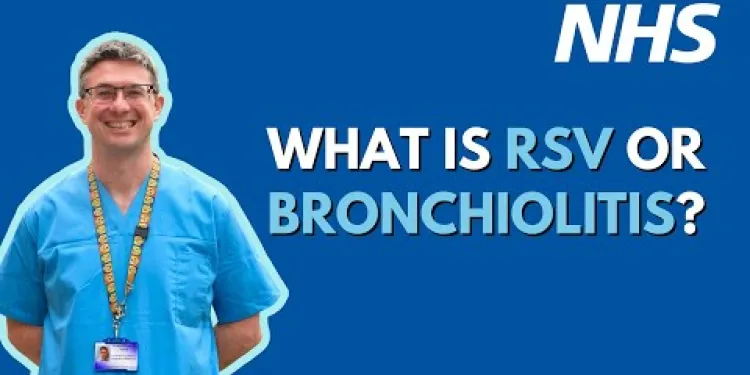
What is RSV (Respiratory Syncytial Virus) or bronchiolitis? UHL NHS Trust
Relevance: 100%
-

Bronchiolitis Advice
Relevance: 58%
-
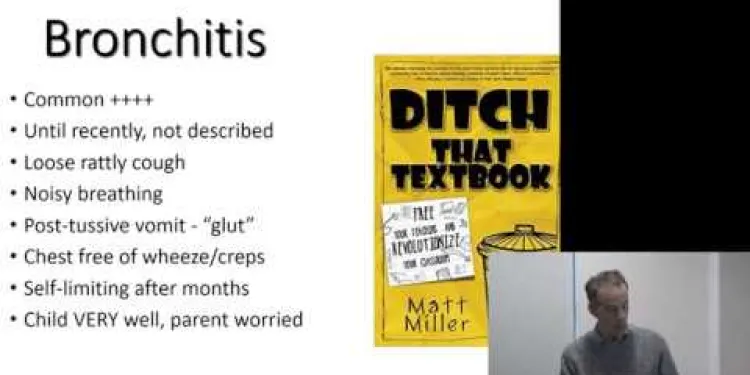
Bronchiolitis and chest infections in young children - Prof Steve Turner
Relevance: 55%
-
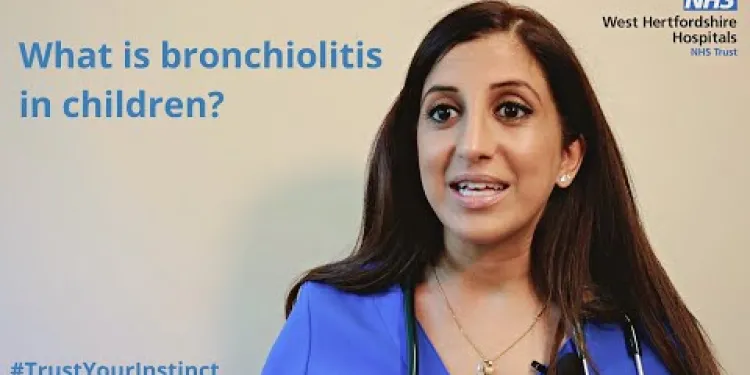
What is bronchiolitis in children? The symptoms, warning signs and when to seek medical help
Relevance: 49%
-

UK Sees Surge in Respiratory Illnesses as Weather Cools
Relevance: 41%
-

Latest Advice on Managing Respiratory Illnesses During Flu Season
Relevance: 25%
-

Understanding and Managing Respiratory Illnesses in Families
Relevance: 23%
-

Are there any respiratory benefits linked to using sunbeds?
Relevance: 22%
-

Can air physiotherapy prevent respiratory infections?
Relevance: 22%
-

What are the symptoms of Nipah Virus infection?
Relevance: 22%
-
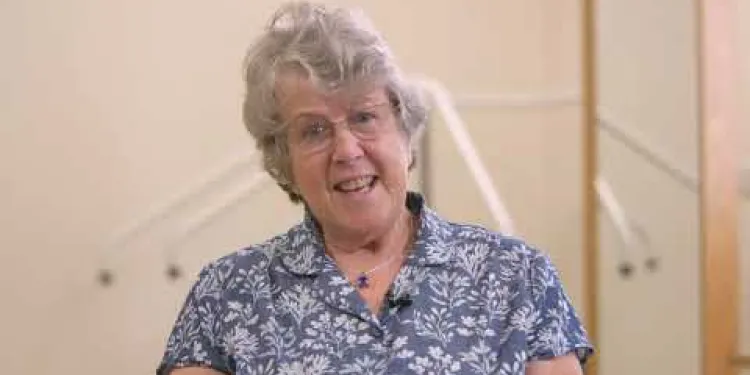
NHSGGC - Respiratory Physiotherapy Service: Self-Management
Relevance: 21%
-

What is Nipah Virus?
Relevance: 20%
-

Is there a cure for Nipah Virus?
Relevance: 20%
-

How is Nipah Virus transmitted?
Relevance: 19%
-

Are there treatments for West Nile Virus?
Relevance: 19%
-

Can Nipah Virus be transmitted from person to person?
Relevance: 19%
-

How is Nipah Virus diagnosed?
Relevance: 19%
-

Is Super Flu a new strain of virus?
Relevance: 18%
-

Where was Nipah Virus first identified?
Relevance: 18%
-

What is the mortality rate of Nipah Virus infection?
Relevance: 18%
-

What causes asthma?
Relevance: 18%
-

Is the Marburg virus related to the Ebola virus?
Relevance: 18%
-
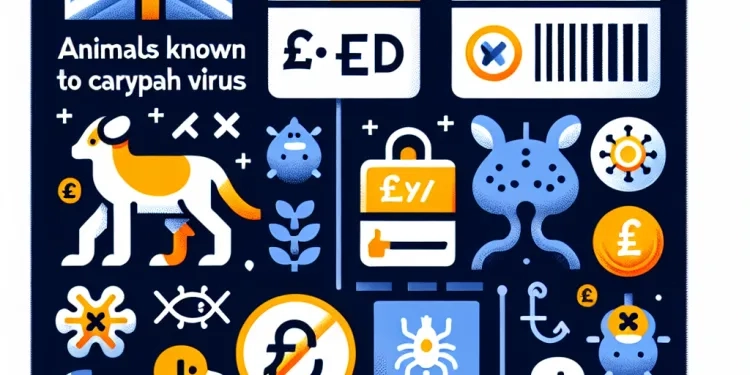
Which animals are known to carry Nipah Virus?
Relevance: 18%
-

Can Nipah Virus cause neurological complications?
Relevance: 17%
-

Can Nipah Virus cause outbreaks?
Relevance: 17%
-

High Air Pollution Levels Linked to Rising Cases of Respiratory Issues
Relevance: 17%
-

Why are Nipah Virus outbreaks considered a public health concern?
Relevance: 17%
-

What are the symptoms of Marburg virus disease?
Relevance: 17%
-

What role do fruit bats play in Nipah Virus transmission?
Relevance: 17%
-

What is the Marburg Virus?
Relevance: 16%
-

How is Nipah Virus controlled during outbreaks?
Relevance: 16%
-

Is there a vaccine for Marburg virus?
Relevance: 16%
-

Has a vaccine been developed against Nipah Virus?
Relevance: 16%
-

Is there a vaccine for the Zika virus?
Relevance: 16%
-

What is the Ebola virus?
Relevance: 16%
-

Is Zika virus present in the UK?
Relevance: 16%
-

What is West Nile Virus?
Relevance: 16%
-
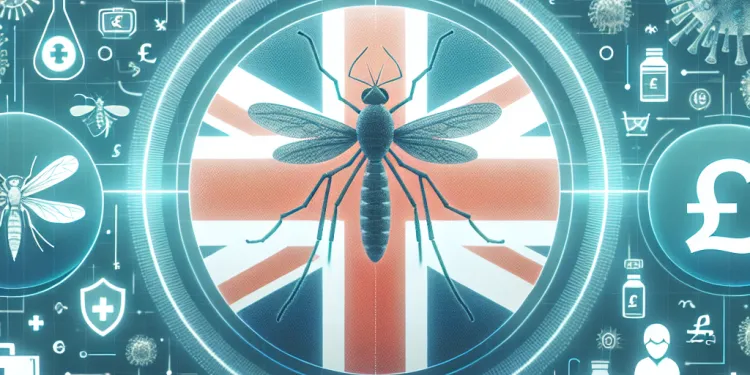
How is the Zika virus transmitted?
Relevance: 16%
-

How is the Marburg virus transmitted?
Relevance: 16%
-

Does the UK have Zika virus?
Relevance: 16%
What is RSV (Respiratory Syncytial Virus) or Bronchiolitis?
Introduction to RSV
Respiratory Syncytial Virus (RSV) is a common respiratory virus that typically causes mild, cold-like symptoms. Most people recover in a week or two, but RSV can be serious, especially for infants and older adults. In the United Kingdom, RSV is a leading cause of respiratory illness in young children.
Understanding Bronchiolitis
Bronchiolitis is an inflammation of the small airways in the lung (bronchioles) caused by an infection, most commonly RSV. This condition is prevalent in children under two years of age and can lead to breathing difficulties, wheezing, and diminished oxygen intake. Bronchiolitis is particularly concerning for infants younger than six months, premature babies, and children with underlying health conditions.
Symptoms of RSV and Bronchiolitis
- Runny nose
- Decrease in appetite
- Coughing and sneezing
- Fever
- Wheezing
- Difficulty breathing
In serious cases, RSV can lead to bronchiolitis or pneumonia, requiring hospital treatment.
Transmission and Prevention
RSV spreads through respiratory droplets when an infected person coughs or sneezes. It can also survive on surfaces, making it easily transmissible through touch. Good hygiene practices, such as frequent hand washing, disinfecting surfaces, and avoiding close contact with sick individuals, are crucial to preventing its spread.
Treatment and Care
There is no specific treatment for RSV or bronchiolitis; most cases are managed with supportive care. This includes ensuring adequate fluid intake, using a humidifier, and administering fever reducers like paracetamol. In severe cases, hospitalisation may be necessary for oxygen therapy, intravenous fluids, or mechanical ventilation.
When to Seek Medical Help
Parents should seek medical advice if their child shows signs of severe bronchiolitis, such as difficulty breathing, bluish colour around the lips or fingernails, persistent high fever, or dehydration. Early intervention can help manage the symptoms and prevent complications.
Conclusion
While RSV and bronchiolitis are common respiratory conditions in the UK, understanding their symptoms, transmission, and treatment options can help manage and prevent severe cases. Always consult healthcare professionals like the UHL NHS Trust for personalised medical advice and support.
What is RSV (Respiratory Syncytial Virus) or Bronchiolitis?
Introduction to RSV
Respiratory Syncytial Virus, or RSV, is a virus that affects the lungs. It usually causes mild symptoms like a cold. Most people get better in a week or two. But sometimes, it can be serious, especially for babies and older adults. In the UK, RSV is a common cause of sickness in young children.
Understanding Bronchiolitis
Bronchiolitis is when the small airways in the lungs, called bronchioles, get swollen. This happens because of an infection, often caused by RSV. It mostly affects children under two years old. Bronchiolitis can make it hard for them to breathe, cause wheezing, and reduce oxygen intake. It is especially concerning for babies under six months, premature babies, and children with health problems.
Symptoms of RSV and Bronchiolitis
- Runny nose
- Less interest in eating
- Coughing and sneezing
- Fever
- Wheezing
- Difficulty breathing
In serious cases, RSV can cause bronchiolitis or pneumonia, which may need hospital care.
Transmission and Prevention
RSV spreads through droplets when someone coughs or sneezes. It can also live on surfaces, so it spreads easily through touch. Good habits like washing hands often, cleaning surfaces, and staying away from sick people can help stop it from spreading.
Treatment and Care
There is no special medicine for RSV or bronchiolitis. Most of the time, care at home helps. This means drinking plenty of fluids, using a humidifier, and taking medicine like paracetamol for fever. In bad cases, the hospital might give oxygen, fluids through a drip, or help with breathing.
When to Seek Medical Help
Parents should talk to a doctor if their child has trouble breathing, has a blue colour around their lips or nails, a high fever that won't go away, or signs of not drinking enough. Getting help early can make a big difference.
Conclusion
RSV and bronchiolitis are common in the UK, but knowing what to look for can help manage and prevent them from getting worse. Always talk to healthcare professionals, like those at the UHL NHS Trust, for advice and support.
Frequently Asked Questions
What is RSV?
RSV stands for Respiratory Syncytial Virus, a common virus that can lead to respiratory tract infections, particularly in young children.
How does RSV spread?
RSV spreads through close contact with infected respiratory secretions, such as droplets from coughs and sneezes or by touching contaminated surfaces.
What are the symptoms of RSV?
Symptoms of RSV can include a runny nose, coughing, sneezing, fever, wheezing, and a decrease in appetite.
Who is at risk for severe RSV infection?
Infants, young children, older adults, and individuals with weakened immune systems or chronic heart and lung conditions are at higher risk.
How can I prevent my child from getting RSV?
Preventative measures include practicing good hygiene, washing hands frequently, avoiding close contact with sick individuals, and keeping surfaces clean.
What should I do if my child shows symptoms of RSV?
If your child shows symptoms of RSV, monitor their condition, ensure they stay hydrated, and seek medical advice if symptoms worsen or if you're concerned.
How is RSV diagnosed?
RSV is typically diagnosed through a medical history review, physical examination, and sometimes lab tests such as a nasal swab.
Can adults get RSV?
Yes, adults can get RSV, but it usually results in milder symptoms compared to young children. However, older adults and those with chronic health conditions can experience severe illness.
Is there a vaccine for RSV?
As of now, there is no widely available vaccine for RSV, but research and development efforts are ongoing.
Can RSV cause complications?
Yes, RSV can lead to complications such as bronchiolitis, pneumonia, and in severe cases, hospitalization may be required.
What is bronchiolitis?
Bronchiolitis is an inflammation of the small airways in the lungs, often caused by RSV. It results in difficulty breathing and is most common in infants.
How can bronchiolitis be treated?
Treatment for bronchiolitis primarily focuses on relieving symptoms and may include hydration, saline nasal drops, and in severe cases, hospitalization for oxygen or respiratory support.
How long does RSV last?
RSV infection typically lasts about 1-2 weeks, but symptoms like coughing and wheezing can persist longer in some individuals.
Can RSV be serious?
Yes, while RSV usually causes mild, cold-like symptoms, it can be serious in young infants, older adults, and individuals with chronic health conditions.
When should I seek medical attention for RSV?
Seek medical attention if your child has difficulty breathing, is not drinking enough fluids, or has symptoms that worsen or do not improve after a few days.
What is RSV?
RSV is a short way to say Respiratory Syncytial Virus.
RSV is a germ that can make you feel sick. It makes it hard to breathe.
This germ can give you a bad cough, runny nose, or fever.
RSV spreads easily. It can spread when someone with the germ coughs or sneezes near you.
To stay healthy, wash your hands often.
If you are worried, talk to a doctor or nurse. They can help you learn more.
Using pictures or videos can help you understand better.
RSV means Respiratory Syncytial Virus. It is a virus that can make people sick. It mostly affects the nose, throat, and lungs. Young children get it more often.
How does RSV spread?
RSV is a germ that can make you sick. It spreads from one person to another.
RSV can spread when:
- Someone who is sick coughs or sneezes near you.
- You touch things that have the germ, like toys or door handles, and then touch your face.
- You hug someone who is sick.
To stay safe, you can:
- Wash your hands often with soap and water.
- Use hand sanitizer if you can’t wash your hands.
- Try not to touch your face with unwashed hands.
- Stay away from people who are coughing or sneezing.
RSV is a germ that can make you sick. It spreads when people cough or sneeze near you. The tiny drops from coughs and sneezes have germs. You can also get RSV by touching things that have the germs on them, like a doorknob or a toy.
What signs show someone has RSV?
RSV can make you feel sick with:
- A runny nose
- Coughing
- Sneezing
- Fever (feeling hot)
- Wheezing (a whistling sound when breathing)
- Not feeling hungry
If you need help, ask someone you trust or use a picture dictionary to understand better. You can also try reading with a family member or a friend.
Who can get very sick from RSV?
Babies, young kids, and older people are more at risk. People who get sick easily or have heart and lung problems are also at higher risk.
How can I stop my child from getting RSV?
To stay healthy, try these tips:
- Wash your hands often with soap and water.
- Stay away from people who are sick.
- Clean things you use every day, like tables and door handles.
What should I do if my child is sick with RSV?
If your child feels unwell and you think it might be RSV, here is what you can do:
- See a Doctor: Take your child to see a doctor.
- Keep them Comfortable: Make sure your child rests and drinks lots of water.
- Check Breathing: Watch your child to see if they have trouble breathing.
- Stay Calm: It is important to stay calm and help your child feel safe.
- Write Down Symptoms: Note down all symptoms to tell the doctor.
Some useful things that can help:
- Medicine: The doctor might give medicine.
- Steam: A warm bath or steam can help with breathing.
- Support: Ask friends and family for help if needed.
If your child is sick with RSV, watch how they are doing. Make sure they drink plenty of water. If they get sicker or if you are worried, talk to the doctor.
How do doctors know if someone has RSV?
Doctors find out if someone has RSV by asking questions about their health and checking their body. Sometimes, they do a test by taking a little bit from inside the nose.
Can grown-ups catch RSV?
Yes, grown-ups can catch RSV, too. RSV is a virus that makes people sick, like a cold. It is important to wash hands and cover your mouth when you cough or sneeze.
Yes, grown-ups can catch RSV. For most adults, it feels like a mild cold. But older adults and people who are already sick can get very sick from it.
Is there a vaccine for RSV?
Yes, there is a vaccine for RSV. RSV is a sickness like a cold. If you get a shot, it can help keep you from getting very sick.
If you don't understand, ask someone to help explain. You can also use pictures or videos to learn more about RSV.
Right now, there is no vaccine for RSV that everyone can use. But scientists are working hard to make one.
Can RSV cause problems?
RSV (Respiratory Syncytial Virus) is a germ that can make people sick. Sometimes, it can cause problems, especially for babies and older people.
If someone has RSV, it is important to watch them closely. This way, you can see if they are getting worse and need help from a doctor.
If you want to understand more about RSV, try asking a grown-up or using simple videos and pictures. These can help make things clearer.
Yes, RSV can cause problems like lung infections, making it hard to breathe. Sometimes, people might need to go to the hospital if it gets very bad.
What is bronchiolitis?
Bronchiolitis is when your small tubes in the lungs get swollen. These tubes help you breathe.
You can use these ideas to help understand:
- Look at pictures of lungs to see what bronchiolitis looks like.
- Use simple words to talk about bronchiolitis.
- Ask a grown-up if you have questions.
Bronchiolitis is when the small tubes in the lungs get swollen. This makes it hard to breathe. A germ called RSV usually causes it. Babies get it the most.
How can doctors help with bronchiolitis?
Bronchiolitis is a problem with breathing. It can make babies and young kids sick.
If your child has bronchiolitis, here is how you can help:
- Give them plenty of rest.
- Make sure they drink lots of water or juice.
- Use a humidifier at home to keep the air moist.
- Keep away from smoking or smoky places.
- If they have trouble breathing, you must see a doctor.
Doctors might give medicine to help them breathe better.
Tools that might help:
- Use pictures to show your child what will happen at the doctor’s office.
- Find videos online that explain bronchiolitis in a simple way.
Always talk to your doctor if you're worried about your child.
If you have bronchiolitis, you need to feel better. Drinking lots of water helps. You can use salty nose drops to make it easier to breathe. If you are very sick, you might need to go to the hospital to get oxygen and help with breathing.
How long does RSV last?
RSV is a virus. It makes people sick.
Most people feel better in 1 to 2 weeks.
Sometimes, people need more help to get well.
Ask a doctor if you are worried.
Tell someone if you need help. A friend or family member can help you talk to a doctor.
RSV is a type of germ that can make you feel sick. When you have RSV, you might be sick for about 1 to 2 weeks. But sometimes, the coughing and breathing problems can last a bit longer.
Can RSV be serious?
RSV is a virus that can make you sick. For most people, it is like a cold. But, some people, like babies or older adults, can get very sick. They might need to go to the doctor or hospital.
If you or someone you know has trouble breathing, feels very tired, or gets worse, tell a grown-up or a doctor.
Some tools that might help are:
- Picture books or videos about being sick
- Talking to a nurse or helper
- Using simple apps that explain health
RSV is a kind of germ that can make you sick. It often causes a runny nose and a cough, like a cold. But for babies, older people, and those who are already sick, it can be very serious.
To help understand better, try using pictures or videos. Use simple charts or listen to someone read the information to you.
When should I see a doctor for RSV?
If you have trouble breathing, feel very tired, or your lips turn blue, tell a grown-up you trust. It's important to go to the doctor. If you feel worse or don't get better in a few days, it's time to get help from a doctor.
Try using a thermometer to check your temperature. If you feel very hot, talk to a grown-up. They can help you see a doctor.
Go to the doctor if your child:
- Has trouble breathing.
- Is not drinking enough water or juice.
- Feels worse or does not get better in a few days.
Useful Links
This website offers general information and is not a substitute for professional advice.
Always seek guidance from qualified professionals.
If you have any medical concerns or need urgent help, contact a healthcare professional or emergency services immediately.
Some of this content was generated with AI assistance. We’ve done our best to keep it accurate, helpful, and human-friendly.
- Ergsy carfully checks the information in the videos we provide here.
- Videos shown by Youtube after a video has completed, have NOT been reviewed by ERGSY.
- To view, click the arrow in centre of video.
- Most of the videos you find here will have subtitles and/or closed captions available.
- You may need to turn these on, and choose your preferred language.
- Go to the video you'd like to watch.
- If closed captions (CC) are available, settings will be visible on the bottom right of the video player.
- To turn on Captions, click settings .
- To turn off Captions, click settings again.
More Items From Ergsy search
-

What is RSV (Respiratory Syncytial Virus) or bronchiolitis? UHL NHS Trust
Relevance: 100%
-

Bronchiolitis Advice
Relevance: 58%
-

Bronchiolitis and chest infections in young children - Prof Steve Turner
Relevance: 55%
-

What is bronchiolitis in children? The symptoms, warning signs and when to seek medical help
Relevance: 49%
-

UK Sees Surge in Respiratory Illnesses as Weather Cools
Relevance: 41%
-

Latest Advice on Managing Respiratory Illnesses During Flu Season
Relevance: 25%
-

Understanding and Managing Respiratory Illnesses in Families
Relevance: 23%
-

Are there any respiratory benefits linked to using sunbeds?
Relevance: 22%
-

Can air physiotherapy prevent respiratory infections?
Relevance: 22%
-

What are the symptoms of Nipah Virus infection?
Relevance: 22%
-

NHSGGC - Respiratory Physiotherapy Service: Self-Management
Relevance: 21%
-

What is Nipah Virus?
Relevance: 20%
-

Is there a cure for Nipah Virus?
Relevance: 20%
-

How is Nipah Virus transmitted?
Relevance: 19%
-

Are there treatments for West Nile Virus?
Relevance: 19%
-

Can Nipah Virus be transmitted from person to person?
Relevance: 19%
-

How is Nipah Virus diagnosed?
Relevance: 19%
-

Is Super Flu a new strain of virus?
Relevance: 18%
-

Where was Nipah Virus first identified?
Relevance: 18%
-

What is the mortality rate of Nipah Virus infection?
Relevance: 18%
-

What causes asthma?
Relevance: 18%
-

Is the Marburg virus related to the Ebola virus?
Relevance: 18%
-

Which animals are known to carry Nipah Virus?
Relevance: 18%
-

Can Nipah Virus cause neurological complications?
Relevance: 17%
-

Can Nipah Virus cause outbreaks?
Relevance: 17%
-

High Air Pollution Levels Linked to Rising Cases of Respiratory Issues
Relevance: 17%
-

Why are Nipah Virus outbreaks considered a public health concern?
Relevance: 17%
-

What are the symptoms of Marburg virus disease?
Relevance: 17%
-

What role do fruit bats play in Nipah Virus transmission?
Relevance: 17%
-

What is the Marburg Virus?
Relevance: 16%
-

How is Nipah Virus controlled during outbreaks?
Relevance: 16%
-

Is there a vaccine for Marburg virus?
Relevance: 16%
-

Has a vaccine been developed against Nipah Virus?
Relevance: 16%
-

Is there a vaccine for the Zika virus?
Relevance: 16%
-

What is the Ebola virus?
Relevance: 16%
-

Is Zika virus present in the UK?
Relevance: 16%
-

What is West Nile Virus?
Relevance: 16%
-

How is the Zika virus transmitted?
Relevance: 16%
-

How is the Marburg virus transmitted?
Relevance: 16%
-

Does the UK have Zika virus?
Relevance: 16%


